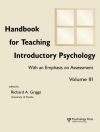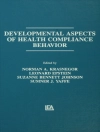‘I told you, I’ll do it later.’
‘I forgot to turn in the stupid application.’
‘Could you drive me to school? I missed the bus again.’
‘I can’t walk the dog–I have too much homework!’
If you’re the parent of a ‘smart but scattered’ teen, trying to help him or her grow into a self-sufficient, responsible adult may feel like a never-ending battle. Now you have an alternative to micromanaging, cajoling, or ineffective punishments. This positive guide provides a science-based program for promoting teens’ independence by building their executive skills–the fundamental brain-based abilities needed to get organized, stay focused, and control impulses and emotions. Executive skills experts Drs. Richard Guare and Peg Dawson are joined by Colin Guare, a young adult who has successfully faced these issues himself. Learn step-by-step strategies to help your teen live up to his or her potential now and in the future–while making your relationship stronger. Helpful worksheets and forms can be downloaded and printed in a convenient 8 1/2′ x 11′ size.
Winner (Third Place)–American Journal of Nursing Book of the Year Award, Consumer Health Category
See also the authors’ Smart but Scattered, Second Edition (with a focus on 4- to 12-year-olds), Smart but Scattered–and Stalled (with a focus on emerging adults), and The Smart but Scattered Guide to Success (with a focus on adults).
表中的内容
Authors’ Note
Introduction
I. What Makes Your Teen Smart but Scattered
1. Executive Skills and the Teen Brain
2. Identifying Your Teen’s Executive Skills Strengths and Weaknesses
3. Assessing Your Own Executive Skills and Parenting Style
II. Laying a Foundation That Can Help
4. Ten Principles for Improving Your Teen’s Executive Skills
5. Motivating Your Teen to Use Executive Skills
6. Modifying the Environment
7. Teaching Executive Skills
III. Putting It All Together
8. Advance Organizer
9. Enhancing Response Inhibition
10. Strengthening Working Memory
11. Increasing Emotional Control
12. Boosting Flexibility
13. Building Sustained Attention
14. Teaching Task Initiation
15. Promoting Planning and Prioritizing
16. Fostering Organization
17. Improving Time Management
18. Encouraging Goal-Directed Persistence
19. Cultivating Metacognition
20. Coaching
21. Transitions
Resources
关于作者
Richard Guare, Ph D, BCBA-D, is a neuropsychologist and board-certified behavior analyst who frequently consults to schools and agencies on attention and executive skills difficulties. He is former Director of the Center for Learning and Attention Disorders at Seacoast Mental Health Center in Portsmouth, New Hampshire. Dr. Guare is coauthor of bestselling books for general readers, including Smart but Scattered, Smart but Scattered Teens, Smart but Scattered–and Stalled (with a focus on emerging adults), and The Smart but Scattered Guide to Success (with a focus on adults). He is also coauthor of The Work-Smart Academic Planner, Revised Edition, and books for professionals including Executive Skills in Children and Adolescents, Third Edition.
Peg Dawson, Ed D, is a psychologist who provides professional development training on executive skills for schools and organizations nationally and internationally. She was previously on the staff of the Center for Learning and Attention Disorders at Seacoast Mental Health Center in Portsmouth, New Hampshire. Dr. Dawson is a past president of the New Hampshire Association of School Psychologists, the National Association of School Psychologists (NASP), and the International School Psychology Association, and a recipient of the Lifetime Achievement Award from NASP. She is coauthor of bestselling books for general readers, including Smart but Scattered, Smart but Scattered Teens, Smart but Scattered–and Stalled (with a focus on emerging adults), and The Smart but Scattered Guide to Success (with a focus on adults). Dr. Dawson is also coauthor of The Work-Smart Academic Planner, Revised Edition, and books for professionals including Executive Skills in Children and Adolescents, Third Edition.
Colin Guare, BCBA, LBA, is a Rhode Island-based behavior analyst and executive skills coach. He has worked with children, adolescents, and young adults since 2008 in clinical, home, and school settings, and consults for organizations and state agencies on employment coaching programs.












